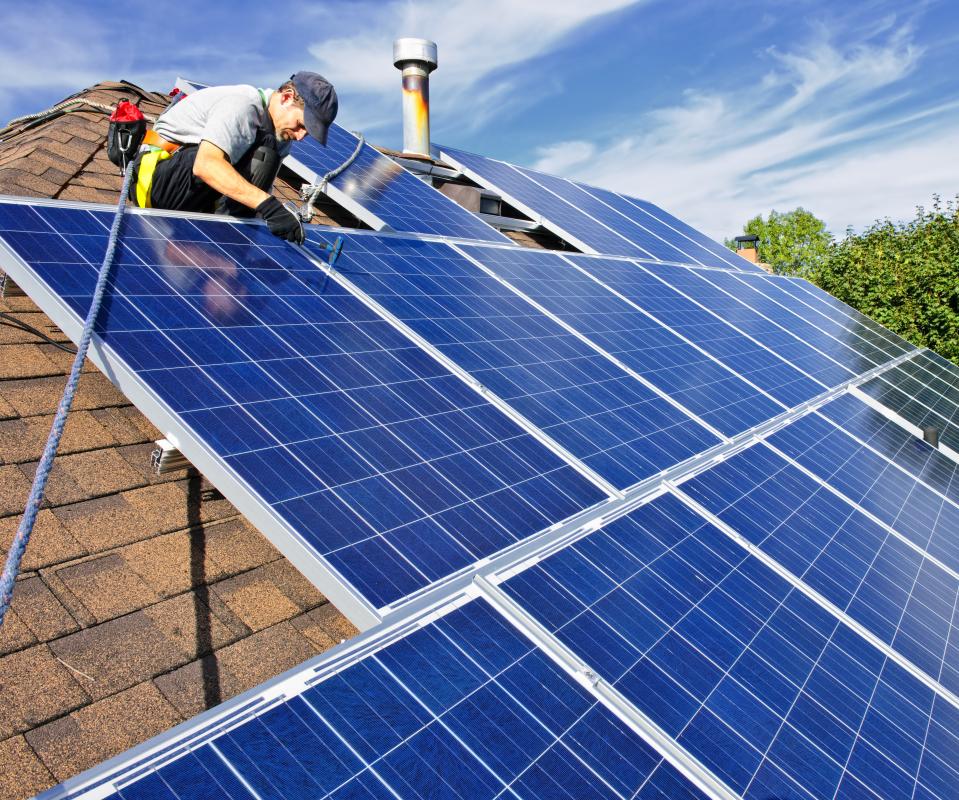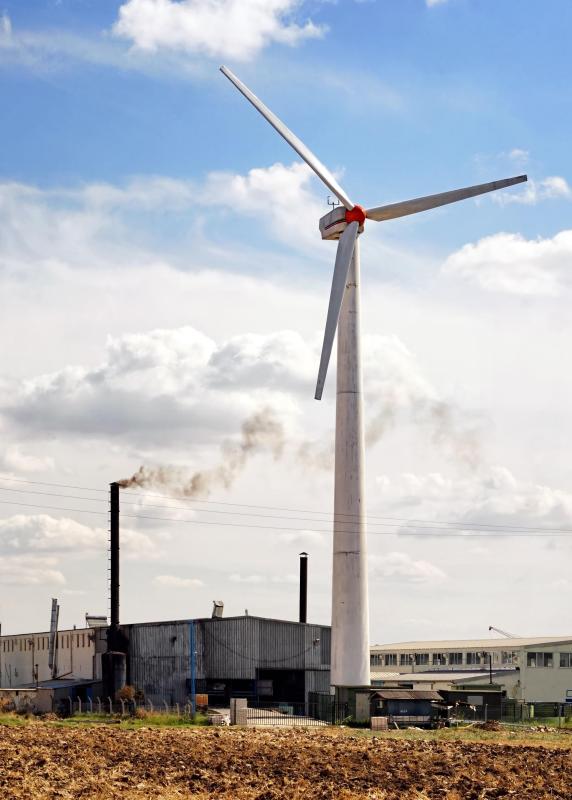At AllThingsNature, we're committed to delivering accurate, trustworthy information. Our expert-authored content is rigorously fact-checked and sourced from credible authorities. Discover how we uphold the highest standards in providing you with reliable knowledge.
What is an Ecovillage?
An ecovillage is a self-sustaining community aimed at developing alternative ecological, environmental and social standards. The ultimate goal of the ecovillage is to create an environment that can support itself through its own development. Think of an ecovillage as the basis for a new world, one in which people must take responsibility for their own energy sources, food and well-being.
The ecovillage is not just a pie-in-the-sky dream. It is thought by many experts to be the only way forward if the world is to continue. In the year 2000, the United Nations published a report based on findings from various United Nations agencies around the world. The Global Environment Outlook report stated that the world’s present course is unsustainable and that postponing action is no longer an option.

There is an urgent need to find real alternatives to the rapidly diminishing energy sources that we have at the moment. The ecovillage is the prototype of the community of the future. Recycling, solar energy and non-toxic materials are all used by the ecovillage as standard.
The inhabitants of the ecovillage come together under common values and guiding desires. They wish to exist in a world in which the environment is protected and the main principle is to not take away more from the earth than we can give back. Ecovillage dwellers want to enhance the quality of their lives at no cost to the earth’s environment.

The inhabitants of an ecovillage are usually a close-knit group of people with strong spiritual and social beliefs. They are there to help each other, as well as to find a model for a sustainable answer to the world’s economic and environmental problems. If the ecovillage proves to be self-sustaining, then it may provide a real answer to the world’s energy crisis.

Most ecovillages share some standard rules. They have their own local organic food production and renewable energy systems. The decision-making process is a group effort, and global networking is used to pass on new solutions and methods to other ecovillages.
Some ecovillages are stand-alone entities, but many are integrated as part of a larger community. Los Angeles has its very own two-block ecovillage neighborhood. It is an intentional community of 35 neighbors who work within the city to show the impact that the ecovillage can have.
The Cooperative Resources and Services Project (CRSP) is a 21-year-old non-profit organization that is slowly building towards a self-sustainable, greener lifestyle. It has its own ecological revolving loan fund with money coming from private lenders. The CRSP is just one of the many ecovillages emerging around the world. If they can prove that this type of lifestyle can work in the long term, then the ecovillage may become the standard instead of an ideal.
Frequently Asked Questions
What exactly is an ecovillage?
An ecovillage is a community designed with sustainable living practices at its core, aiming to minimize its ecological impact. These villages integrate green building, organic farming, renewable energy, and cooperative governance to create a harmonious balance between human activities and the natural environment, fostering a lifestyle that supports both ecological and social well-being.
How do ecovillages contribute to environmental sustainability?
Ecovillages contribute to environmental sustainability by reducing carbon footprints through renewable energy use, promoting biodiversity with organic agriculture, and practicing waste reduction and recycling. They often preserve natural habitats and encourage a lifestyle that values minimal consumption, which collectively helps to mitigate climate change and protect ecosystems.
Can anyone join an ecovillage, and how would one do so?
Joining an ecovillage typically involves a process that includes learning about the community's values, participating in shared activities, and often a trial living period. While most ecovillages welcome new members who share their commitment to sustainability, it's important to engage with the community to ensure a mutual fit before making a commitment.
What are the social benefits of living in an ecovillage?
Living in an ecovillage fosters a strong sense of community and belonging, as residents work together towards common goals. The collaborative environment encourages sharing of resources, skills, and knowledge, which can lead to deeper interpersonal connections, mutual support, and a more fulfilling social life compared to traditional living arrangements.
Are ecovillages economically viable and self-sufficient?
Many ecovillages strive for economic viability and self-sufficiency by producing food, generating income through eco-tourism or selling crafts, and reducing living costs through shared resources. While complete self-sufficiency is challenging, ecovillages often achieve a significant degree of economic resilience and reduced dependence on external economies.
How do ecovillages handle governance and decision-making?
Ecovillages typically employ consensus-based decision-making or democratic processes to ensure that governance is participatory and reflects the community's values. This approach encourages active involvement from all members, fostering transparency and collective responsibility in managing the community's affairs and addressing issues that arise.
AS FEATURED ON:
AS FEATURED ON:













Discuss this Article
Post your comments